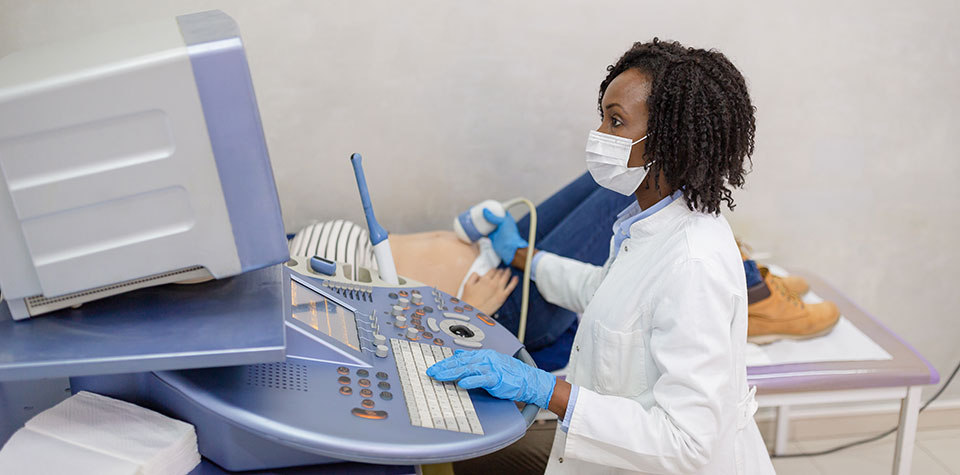
How to Become an Ultrasound Technician
In the rapidly advancing field of healthcare, becoming an ultrasound technician german-seo.com/ offers a fulfilling career path with numerous opportunities for growth and contribution to patient care. From conducting diagnostic imaging procedures to assisting in crucial medical diagnoses, ultrasound technicians play a vital role in the healthcare system.
Educational Requirements
To embark on the journey of becoming an ultrasound technician, individuals typically start with a solid educational foundation.
High School Education
A high school diploma or equivalent is the first step towards pursuing a career in ultrasound technology. Courses in mathematics, physics, biology, and anatomy can provide a strong groundwork for future studies in the field.
Associate’s Degree
Many aspiring ultrasound technicians opt for an associate’s degree program in diagnostic medical sonography, which usually takes around two years to complete. These programs offer comprehensive training in ultrasound technology and include both classroom instruction and hands-on clinical experience.
Bachelor’s Degree
While not always mandatory, some employers prefer candidates with a bachelor’s degree in diagnostic medical sonography or a related field. A bachelor’s degree may provide additional opportunities for specialization and advancement in the field.
Specialized Training and Certification
After completing the necessary educational requirements, aspiring ultrasound technicians must undergo specialized training and obtain certification.
Accredited Ultrasound Technology Programs
It is crucial to enroll in an accredited ultrasound technology program recognized by professional organizations such as the Commission on Accreditation of Allied Health Education Programs (CAAHEP) or the Joint Review Committee on Education in Diagnostic Medical Sonography (JRC-DMS).
Clinical Training
Hands-on clinical training is an integral part of ultrasound technology programs, allowing students to gain practical experience under the supervision of experienced professionals in real healthcare settings.
Certification Exams
Upon completion of their education and clinical training, individuals can pursue certification through organizations such as the American Registry for Diagnostic Medical Sonography (ARDMS) or the American Registry of Radiologic Technologists (ARRT). Certification demonstrates proficiency in the field and enhances employability.
Skills and Qualities Needed
Becoming a successful ultrasound technician requires a combination of technical skills and personal qualities.
Attention to Detail
Ultrasound technicians must pay close attention to detail to ensure accurate imaging and diagnosis, as even minor errors can have significant implications for patient care.
Communication Skills
Effective communication with patients, physicians, and other healthcare professionals is essential in this role. Ultrasound technicians must be able to explain procedures clearly, address patient concerns, and collaborate with colleagues to provide optimal care.
Technical Proficiency
Proficiency in operating ultrasound equipment and interpreting imaging results is fundamental to the role. Continuous learning and staying updated with advancements in technology are crucial for maintaining technical skills.
Job Outlook and Opportunities
The job outlook for ultrasound technicians is promising, with a growing demand for diagnostic imaging services in various healthcare settings.
Growth Projections
According to the Bureau of Labor Statistics, employment of diagnostic medical sonographers is projected to grow significantly in the coming years, driven by an aging population and increasing demand for diagnostic imaging procedures.
Work Settings
Ultrasound technicians can find employment opportunities in hospitals, clinics, imaging centers, and physician offices. The versatility of the profession allows individuals to explore different work environments based on their preferences and career goals.
Advancement Opportunities
Beyond entry-level positions, ultrasound technicians have opportunities for advancement and specialization within the field.
Specializations
Specializing in areas such as obstetrics and gynecology, cardiology, or vascular sonography can open doors to higher-paying positions and expanded responsibilities.
Continuing Education
Continuing education is essential for staying abreast of advancements in ultrasound technology and maintaining certification. Many professionals pursue additional certifications or advanced degrees to enhance their skills and qualifications.
Salary Expectations
The salary of an ultrasound technician can vary based on factors such as education, experience, location, and specialization.
Factors Influencing Salary
Factors such as geographic location, employer type, and level of experience can significantly impact an ultrasound technician’s salary.
Average Salary Range
According to the Bureau of Labor Statistics, the median annual wage for diagnostic medical sonographers is competitive, with opportunities for higher earnings with experience and specialization.
Job Satisfaction and Challenges
While the role of an ultrasound technician can be rewarding, it also comes with its unique set of challenges.
Fulfilling Aspects
Many ultrasound technicians find fulfillment in knowing that their work directly contributes to patient care and medical diagnoses, making a meaningful difference in people’s lives.
Common Challenges
Challenges such as long hours, physically demanding work conditions, and dealing with patient anxiety or discomfort are common in this profession. However, overcoming these challenges can be immensely rewarding.
How to Prepare for a Career in Ultrasound Technology
For those aspiring to pursue a career in ultrasound technology, thorough preparation is key to success.
Researching Programs
Researching accredited ultrasound technology programs and evaluating their curriculum, facilities, and clinical opportunities can help individuals choose the right educational path.
Gaining Relevant Experience
Seeking opportunities for internships, volunteer work, or shadowing experiences in healthcare settings can provide valuable insight into the profession and enhance one’s resume.
Networking
Building connections with professionals in the field, attending industry events, and joining professional organizations can help aspiring ultrasound technicians stay informed and connected within the industry.
Landing Your First Job
Securing a job as an ultrasound technician requires a well-crafted resume, effective interview skills, and a proactive approach to job search.
Resume Building
Highlighting relevant education, clinical experience, certifications, and skills on your resume can make you stand out to potential employers.
Interview Preparation
Preparing for interviews by researching the prospective employer, practicing common interview questions, and showcasing your passion for the profession can increase your chances of success.
Continuing Education and Professional Development
Continuous learning and professional development are essential for staying competitive and advancing in the field of ultrasound technology.






